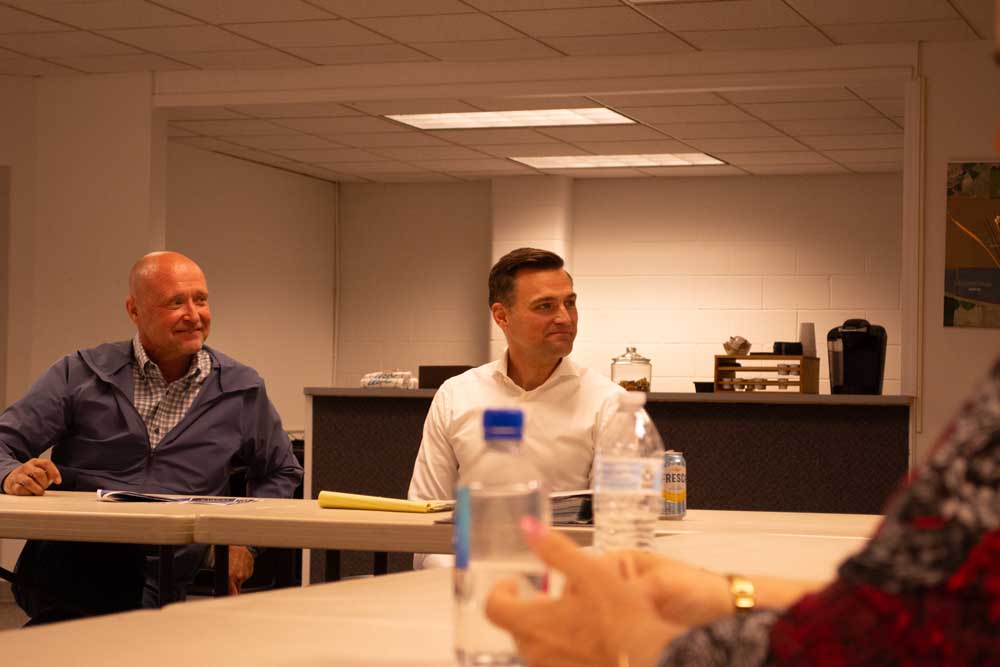Capital chatter: Oregon lawmakers are talking past each other on Measure 110
Published 4:30 pm Thursday, January 4, 2024

- capital chatter logo
One curiosity about Gov. Tina Kotek is her current hands-off approach to revising Measure 110, the drug-decriminalizing and treatment-funding law approved by voters two years before she was elected as Oregon’s chief executive.
Trending
Kotek’s been a take-charge governor. She’s plunged into a host of contentious intergovernmental issues, most notably the inability of Portland’s leaders to resolve crime, homelessness and other problems bedeviling the central city.
Working with business leaders and others, Kotek in August established the Portland Central City Task Force that last month allowed Mayor Ted Wheeler, Multnomah County chair Jessica Vega Pederson, the governor and others to jointly claim political victory … or at least progress. (During the Oregon Leadership Summit in Portland on Dec. 11, the mayor and county chair devoted considerable verbiage to proclaiming what their respective government already had accomplished.)
In contrast, when I have asked Kotek about Measure 110 – a controversial issue during the gubernatorial campaign and throughout her first year in office – she has deferred to the Legislature’s Joint Committee on Addiction and Community Safety Response, created in late September by Senate President Rob Wagner, D-Lake Oswego, and House Speaker Dan Rayfield, D-Corvallis.
Trending
It strikes me that Democrats and Republicans, whether on the committee or outside it, are talking past each other as far as solutions. That was evident again during the committee’s third meeting, on Dec. 4. Three days later at the governor’s press conference in Gladstone, I asked Kotek whether she still opposed repealing the measure, whether she saw consensus toward a solution and whether she had a sense of what needed to be done.
Kotek responded: “I know my team is watching that joint committee. I think that committee put together by legislative leadership is the place to look for the solutions.
“I think most Oregonians don’t want the whole thing wholesale-repealed. And, they want to make sure it’s working for people. They want to make sure that changes can be made so we’re seeing more folks entering into recovery, but also provide those extra dollars for treatment.
“I think what you’re going to see out of the Legislature is a plan to incorporate changes that actually get there while maintaining the good parts of Measure 110. They’re doing the job, so I’ll be interested to see what they come up with.”
So will the rest of Oregon.
With the Legislature set to convene Feb. 5 for this year’s 35-day session, those legislative solutions have yet to emerge publicly. That surprises me, given the intense public interest coupled with hope for collaborative, bipartisan legislation.
When I followed up with Kotek’s staff this week, press secretary Elisabeth Shepard told me:
“The governor has been outspoken on her support of a public use ban of controlled substances, the need to reduce barriers to prosecuting individuals who are selling controlled substances, and to increase access to behavioral health services. All three items were among the Portland Central City Task Force recommendations, which will bring momentum and a broad cross-section of support for these policy concepts heading into the legislative session. The Legislature’s joint committee is now the appropriate venue for a full public process and policy work.
“The governor and her staff will continue to support the concepts listed above as they move through the legislative process.”
During next week’s Legislative Days, the Democrat-led committee will meet on Wednesday for the fourth time – presumably the final meeting before the 2024 session begins.
“Barring any unforeseen circumstances, it is still the intention that a policy package will be announced before the short session. The announcement will be separate from the fourth committee meeting, nearer to the start of session,” Tess Seger, the Senate Majority Office communications director, told me.
“As is the case for all legislation, there will be committee hearings during session to further vet these proposals.
“All policy proposals are still in process, and there are no legislative concepts ready to share with anyone yet. We will absolutely provide those details once we have them.”
Next week’s committee agenda primarily involves testimony from invited speakers. The agenda does list a work session on legislative concepts, referred to as LCs. However, the three bill drafts posted so far merely are placeholders that call for studying this or that issue. The actual legislation will be amended into them.
For example, LC 152 states: “Relating to the addiction crisis in this state.
“Be It Enacted by the People of the State of Oregon:
“SECTION 1. The Oregon Health Authority shall study Oregon’s addiction crisis. The authority shall submit a report in the manner provided by ORS 192.245, and may include recommendations for legislation, to the interim committees of the Legislative Assembly related to health no later than September 15, 2025.
“SECTION 2. Section 1 of this 2024 Act is repealed on January 2, 2026.”
Everyone, except most of the public, knows that language is a temporary façade. The good news is that the descriptions of the legislative concepts comply with the Flesch Readability Score required by a 1979 state law, an issue raised by Senate Republicans last year.




